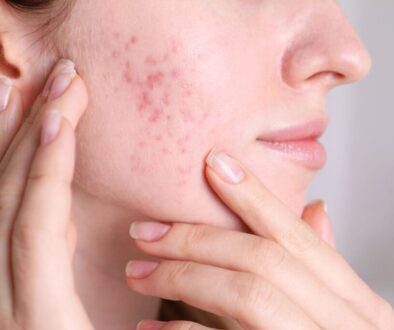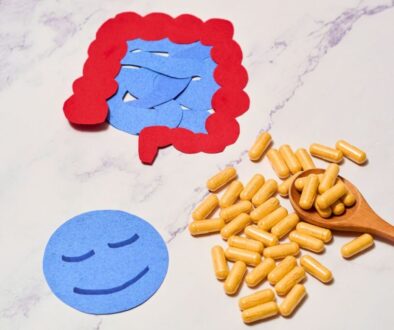Is It Safe To Take Expired Probiotics? Find Out What To Do
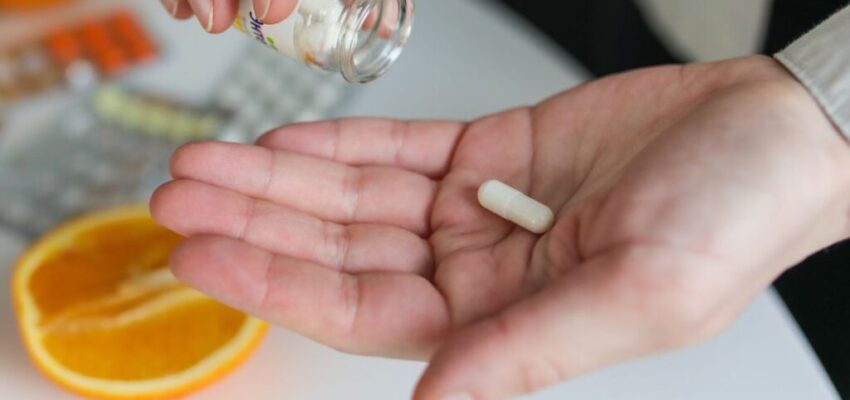
Published on April 22, 2025
Do you rely on probiotics to support your gut health and immunity? Have you ever wondered what happens if you accidentally take expired probiotics? Do they still work, or could they pose a risk? Probiotics work only if their live microorganisms stay active. Using them past their expiration date may reduce their benefits. It could also cause problems. Don’t worry, we’re here to help.
In this article, we’ll dive into everything about expired products. Are they safe? Do they still work? What should you do if you’ve already taken them? Read on to find out.
Understanding Expired Probiotics
Probiotics have an expiration date, which indicates how long the microorganisms are expected to remain active and effective. Beyond this date, the number of live bacteria, measured in colony-forming units (CFUs), gradually decreases. While the product doesn’t become harmful after expiration, its potency will likely diminish.
The Impact Of Shelf Life On Probiotic Effectiveness
Probiotics only work if the bacteria remain alive until they reach your gut. Over time, CFU counts decrease naturally. Expired probiotics may become less effective. They might not support digestion or boost immunity as expected.
Factors Affecting Probiotic Expiry
- Storage conditions. Probiotic strains are susceptible to heat, light, and humidity. Improper storage can cause the bacteria to lose potency. Warm or damp environments speed this up, and it can happen even before the expiration date.
- Packaging and moisture exposure. Airtight, opaque packaging protects probiotics from harmful environmental factors. Once opened or damaged, exposure to oxygen and moisture quickly reduces their effectiveness.
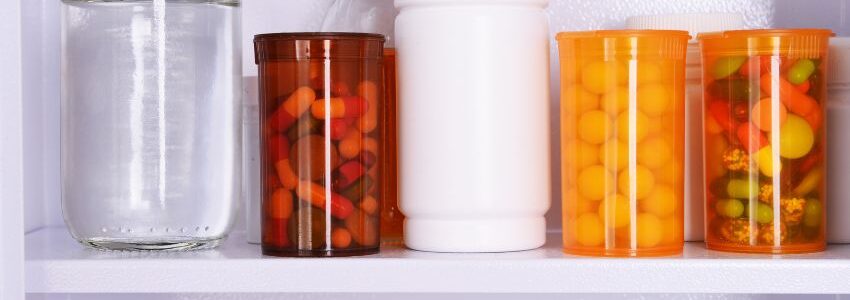
Can You Take Expired Probiotics?
In most cases, consuming probiotics past their expiration date is safe. As dietary supplements rather than medications, probiotics don’t contain ingredients that become harmful over time. The primary issue with expired probiotics is a loss of potency, not a risk to your health.
What Happens If You Take Expired Probiotics?
The most common issue is a lack of effectiveness. The product won’t deliver the expected benefits if the bacteria are no longer active. Spoilage may occur in rare cases, particularly with improper storage, potentially causing mild digestive discomfort.
Can Expired Probiotics Cause Diarrhea Or Other Side Effects?
If the product is improperly stored or contaminated, some people may experience mild symptoms like bloating or diarrhea. These effects are usually temporary and do not cause serious concern.
What Should I Do If I Accidentally Take Expired Probiotics?
Taking expired probiotics accidentally happens, but it’s usually nothing to worry about. While they lose potency over time, knowing what to do next can help you handle the situation smoothly.
Evaluate The Time Since Expiration
Start by checking the expiration date. If the product expires only recently (within a few weeks or months), it’s typically not a significant concern. However, items that have been expired for years may have significantly lost their effectiveness or deteriorated in quality.
Watch For Potential Side Effects
If you’ve taken expired probiotics, consider how your body reacts. Most people won’t experience any noticeable changes, but it’s essential to stay alert for the following:
- Digestive discomfort. You might experience mild bloating, gas, or diarrhea, especially if the probiotics were not stored properly.
- Allergic reactions. Although rare, symptoms like itching, swelling, or general discomfort could occur. If this happens, discontinue use and consult a healthcare professional.
When To Consult A Healthcare Professional
Expired probiotics are generally safe, but it’s essential to seek medical advice if you experience any of the following:
- Ongoing or severe digestive problems
- Signs of contamination, such as fever or vomiting
- Allergic reactions of any kind
Expired probiotics are usually harmless, but always watch for any unusual symptoms. If you experience severe reactions or discomfort, consult a healthcare professional.
How To Avoid Taking Expired Probiotics In The Future
- Store them properly. Always follow the storage instructions provided on the product label. If refrigeration is recommended, store your probiotics in a cool place. Keep them in their original packaging to avoid heat, light, and moisture.
- Stay on top of expiration dates. Organize your supplements so those approaching their expiration date are easy to spot. Regularly check the dates to ensure you don’t accidentally use expired probiotics.
Frequently Asked Questions
Can I take expired probiotics if they’ve been stored properly?
Even under optimal storage conditions, probiotic potency gradually diminishes over time. While expired probiotics may still contain live bacteria, their effectiveness will likely be significantly reduced.
Are probiotics still effective after their expiration date?
Probiotics can stay effective for a short time after their expiration date. This is especially true if they’re correctly stored. However, their potency gradually decreases the longer they remain unused.
Can expired probiotics still offer health benefits?
If some live bacteria remain, you might experience minor benefits. However, these will be much lower than a fresh, potent probiotic supplement.
Do expired probiotics cause digestive issues?
Expired probiotics are unlikely to cause harm in most cases. While some may experience mild digestive discomfort, this is typically linked to improper storage or personal sensitivity rather than the expiration date.
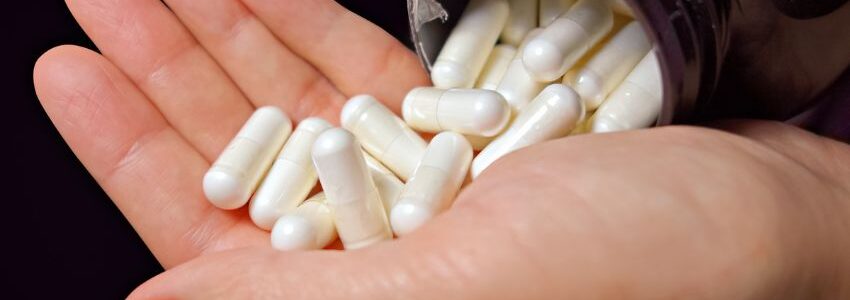
Why Choose Bionaze
Not all probiotics are created equal, especially when it comes to reliability and shelf life. Bionaze sets itself apart with clinically studied strains like BLIS K12 (Streptococcus salivarius K12) and BL-04 (Bifidobacterium Lactis). These strains support gut health and upper respiratory wellness. Designed for stability, Bionaze preserves its potency when stored properly. This ensures consistent results and peace of mind.
If you’re tired of supplements that expire quickly or fail to deliver, Bionaze offers a trusted, science-backed solution that prioritizes quality, safety, and effectiveness.
What To Remember About Expired Probiotics
Accidentally taking expired probiotics is usually nothing to worry about. While they may not be as effective, they’re generally safe. Watch for unusual symptoms and consult your doctor if something feels wrong.
To get the most from your probiotic supplements, store them properly, check expiration dates regularly, and aim to use them within their recommended shelf life. That way, you’ll ensure the good bacteria stay alive and ready to support your gut and immune health.
Say goodbye to the guesswork of expired or ineffective supplements! Try Bionaze, made with clinically proven strains, to deliver consistent, reliable results you can count on.
Benefit From The Latest Advancements In Probiotic Science With Bionaze
Bionaze is a proprietary blend of probiotics proven to promote ear, nose, and throat health, improve digestion, and support your immune system. The active ingredients BLIS K12, and BL-04 are considered among the best probiotics according to science.
Get 25% Off Your First Order when you use BIO25 at checkout!

This Content Has Been Reviewed For Factual Accuracy
This content has undergone thorough fact-checking by our team of internal experts. Learn more about the meticulous editorial standard for our website here.
ADVERTISEMENT

About The Author
Hi, I’m Corinne Grace, a proud nursing graduate from Riverside College with a flair for writing. I specialize in health and wellness topics, using my educational background to weave informative and attention-grabbing articles that appeal to a wide variety of readers.

